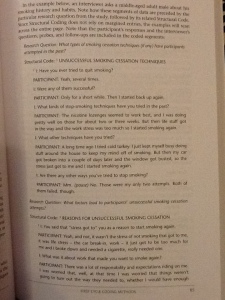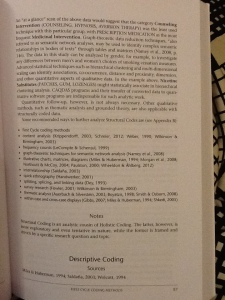I think I am ready now to expose my research questions to the world. Here it goes:
- Are 1958 British Birth cohort members’ perceived social class identities affected by participation in higher education? If so, how?
- What role does structure and agency have to play on working-class cohort members’ decisions to enter or not enter higher education as a young or mature student at some point in their lives between 1976 and 2008?
- What meaning and significance does having a degree hold for cohort members as they reflect back on their lives age 50?
- Can understandings of participation in higher education across the lifecourse be enhanced by the use of a mixed methods secondary dataset and by applying mixed modes of analysis?
Why is that scary? Well, because someone might ask a question about it that I won’t know the answer to. Someone may say ‘that it is a shit topic’. Someone may ask ‘what’s the point’ and I’ll have to articulate an answer. Someone might say, ‘oh so and so already did that exact topic, I can’t believe you didn’t know?’ Someone may say ‘wow, briliant topic, your thesis is going to be so interesting’ and I’ll think, ‘well, not if I can’t do it’. Or someone may say ‘you’ve put an apostrophe in the wrong place’.
But I like them, they feel like my little friends, always by my side, quietly nagging me for not spending time with them and forgetting their birthdays… oh sorry, that just slipped out.
Go on, be vulnerable and show me yours (research questions that is).
Thanks to Jessica Gagnon for the video link.



